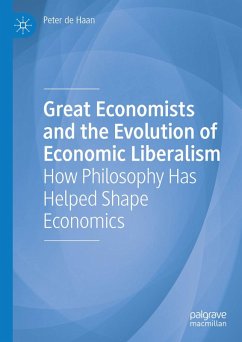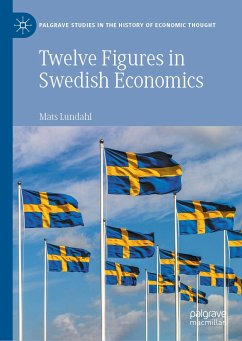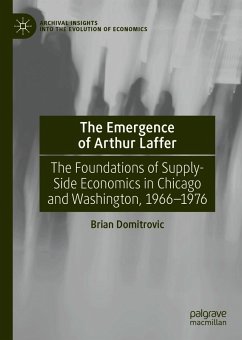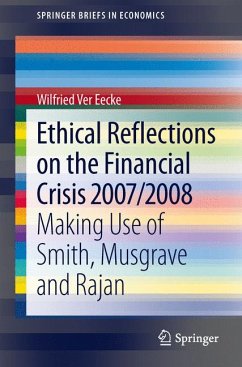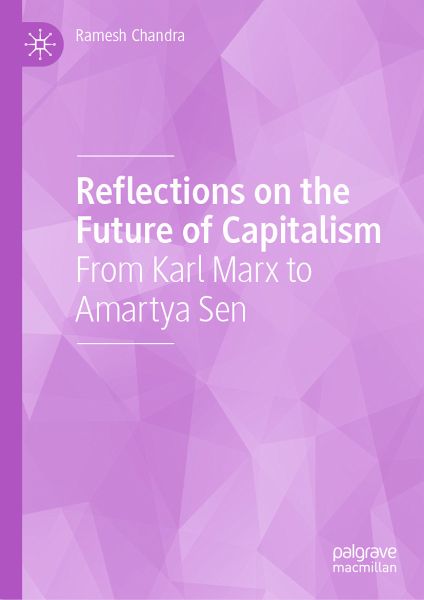
Reflections on the Future of Capitalism (eBook, PDF)
From Karl Marx to Amartya Sen
Versandkostenfrei!
Sofort per Download lieferbar
96,95 €
inkl. MwSt.
Weitere Ausgaben:

PAYBACK Punkte
48 °P sammeln!
This book explores the ideas of nine renowned economists to present the evolution of economic thought on the development and trajectory of capitalism as a system. The author shows how this diverse group of thinkers are linked by their thinking on the future role of capitalism in society and fleshes out the influences informing each economist's work. With chapters dedicated to Karl Marx, Joseph Schumpeter, Thorstein Veblen, Henry George, Gunnar Myrdal, Alfred Marshall, Allyn Young, J. M. Keynes and Amartya Sen, the book aims to analyse contrasting views on the future of capitalism in historical...
This book explores the ideas of nine renowned economists to present the evolution of economic thought on the development and trajectory of capitalism as a system. The author shows how this diverse group of thinkers are linked by their thinking on the future role of capitalism in society and fleshes out the influences informing each economist's work. With chapters dedicated to Karl Marx, Joseph Schumpeter, Thorstein Veblen, Henry George, Gunnar Myrdal, Alfred Marshall, Allyn Young, J. M. Keynes and Amartya Sen, the book aims to analyse contrasting views on the future of capitalism in historical perspective and make a critical assessment of their insights in contemporary contexts.
While considering the views of some thinkers such as Marx, Schumpeter, and Veblen who critiqued capitalism, the book does not view capitalism beyond redemption, nor is meant to be a critique of capitalism in its conclusions. Rather, it argues that thinkers like Marshall, Myrdal, Young and Keynes were more right in their optimism about the future prospects of capitalism than many others. It argues that capitalism can be reformed through the democratic process in a more humane direction. This can happen if democracy works for all, and if discriminating privileges and crony capitalism are eschewed. This book is valuable reading for scholars and students of economic history and the history of economic thought.
While considering the views of some thinkers such as Marx, Schumpeter, and Veblen who critiqued capitalism, the book does not view capitalism beyond redemption, nor is meant to be a critique of capitalism in its conclusions. Rather, it argues that thinkers like Marshall, Myrdal, Young and Keynes were more right in their optimism about the future prospects of capitalism than many others. It argues that capitalism can be reformed through the democratic process in a more humane direction. This can happen if democracy works for all, and if discriminating privileges and crony capitalism are eschewed. This book is valuable reading for scholars and students of economic history and the history of economic thought.
Dieser Download kann aus rechtlichen Gründen nur mit Rechnungsadresse in A, B, BG, CY, CZ, D, DK, EW, E, FIN, F, GR, HR, H, IRL, I, LT, L, LR, M, NL, PL, P, R, S, SLO, SK ausgeliefert werden.




